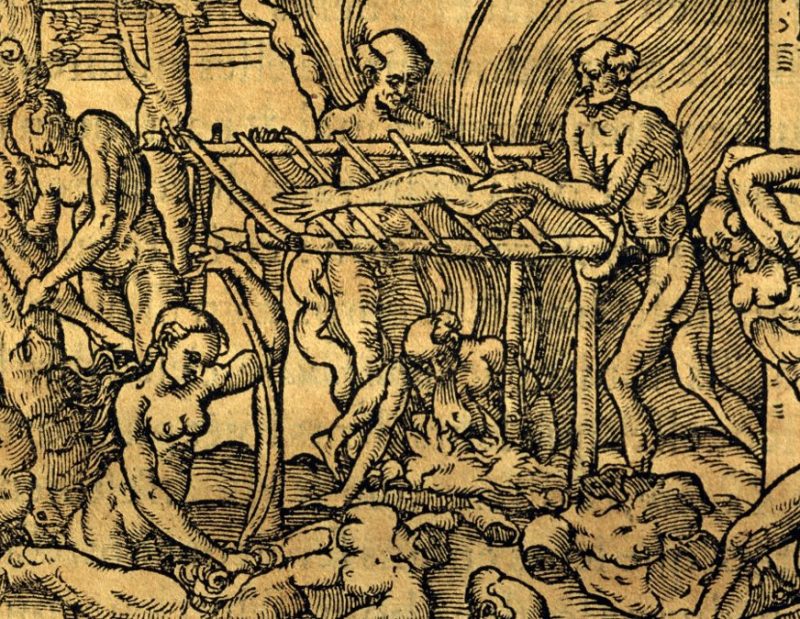
Whether it’s a symbol of ultimate decadence or flailing desperation, cannibalism is one of the few ultimate taboos left on Earth. And there’s new scientific evidence on why it remains such a bad idea: it’s unhealthy from a nutritional perspective.
In a paper published by Scientific Reports, the University of Brighton’s James Cole explains that humans aren’t an efficient or healthy source of calories. His research indicates that our bodies contain 125,822 calories on average, nearly 50 times the amount of calories that humans need to eat every day to sustain ourselves. This would seem to make humans a rich source of energy, and was often brought up as the reason why early humans practiced cannibalism.
But compared to other animals, like mammoths (3.6 million calories in the muscles alone) or red deer (163,680 calories)—both of which were widely available to early humans as food—humans are, in fact, a poor choice as a food source. Cole thinks it’s more likely that early cannibalism was practiced for ritualistic purposes, and even those were (and are) incredibly unsafe.
Not only are we the most dangerous game, from a nutritional standpoint we’re not worth the effort.
—RealClearLife
This article was featured in the InsideHook newsletter. Sign up now.






















